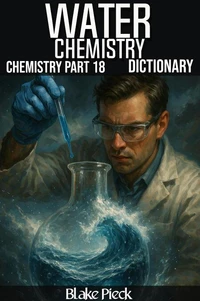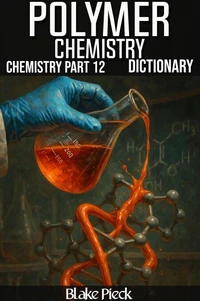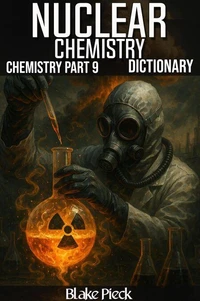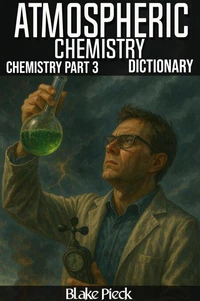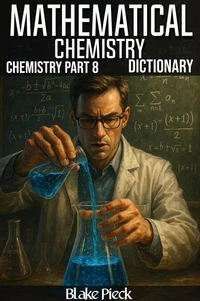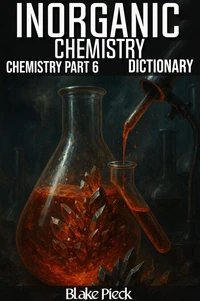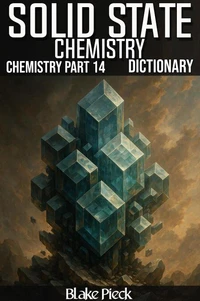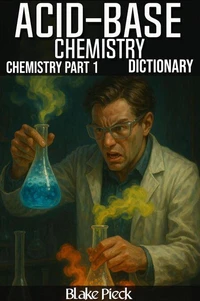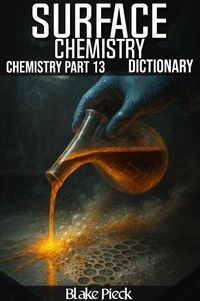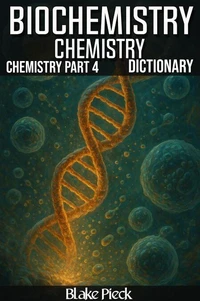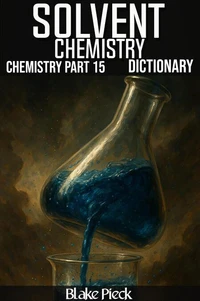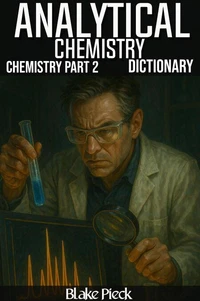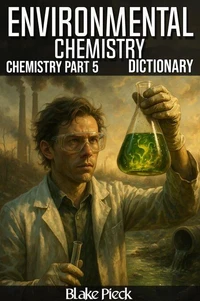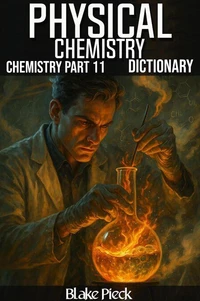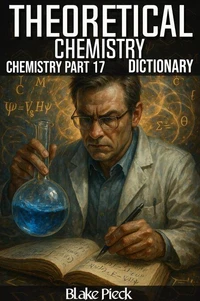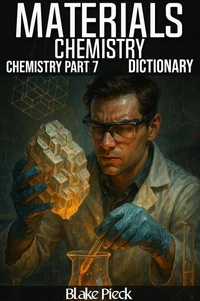Nouveauté
Organic Chemistry - Chemistry Part 10 Dictionary. Grow Your Vocabulary
Par :Formats :
Disponible dans votre compte client Decitre ou Furet du Nord dès validation de votre commande. Le format ePub est :
- Compatible avec une lecture sur My Vivlio (smartphone, tablette, ordinateur)
- Compatible avec une lecture sur liseuses Vivlio
- Pour les liseuses autres que Vivlio, vous devez utiliser le logiciel Adobe Digital Edition. Non compatible avec la lecture sur les liseuses Kindle, Remarkable et Sony
 , qui est-ce ?
, qui est-ce ?Notre partenaire de plateforme de lecture numérique où vous retrouverez l'ensemble de vos ebooks gratuitement
Pour en savoir plus sur nos ebooks, consultez notre aide en ligne ici
- FormatePub
- ISBN8231083657
- EAN9798231083657
- Date de parution01/09/2025
- Protection num.pas de protection
- Infos supplémentairesepub
- ÉditeurWalzone Press
Résumé
Organic chemistry examines the vast world of carbon-based compounds that form the foundation of life and countless synthetic materials. It studies the structures, properties, and reactions of molecules ranging from simple hydrocarbons to complex biomolecules. This field explains how fuels burn, how polymers are created, and how medicines are designed, making it one of the most dynamic and widely applied areas of chemistry.
In the broader discipline of chemistry, organic study demonstrates the central role of carbon in building diverse molecular frameworks. It connects to biochemistry, pharmaceutical science, environmental chemistry, and industrial production. Through organic chemistry, the principles of bonding, stereochemistry, and functional groups become tools for both understanding and innovation. This dictionary compiles the essential vocabulary of organic chemistry into clear, well-developed entries.
It covers terms related to reaction mechanisms, spectroscopy, synthesis, functional groups, and molecular structure. Each entry is designed to support students learning the fundamentals, help educators provide guidance, and offer researchers a reliable reference point for study and practice. Learning through a dictionary encourages step-by-step mastery of terminology, helping readers build confidence with a subject known for its complexity.
Revisiting and connecting definitions strengthens understanding while highlighting the patterns that unify organic reactions. With organic chemistry serving as a cornerstone of modern science and technology, a strong command of its language provides enduring value for education, research, and professional growth.
In the broader discipline of chemistry, organic study demonstrates the central role of carbon in building diverse molecular frameworks. It connects to biochemistry, pharmaceutical science, environmental chemistry, and industrial production. Through organic chemistry, the principles of bonding, stereochemistry, and functional groups become tools for both understanding and innovation. This dictionary compiles the essential vocabulary of organic chemistry into clear, well-developed entries.
It covers terms related to reaction mechanisms, spectroscopy, synthesis, functional groups, and molecular structure. Each entry is designed to support students learning the fundamentals, help educators provide guidance, and offer researchers a reliable reference point for study and practice. Learning through a dictionary encourages step-by-step mastery of terminology, helping readers build confidence with a subject known for its complexity.
Revisiting and connecting definitions strengthens understanding while highlighting the patterns that unify organic reactions. With organic chemistry serving as a cornerstone of modern science and technology, a strong command of its language provides enduring value for education, research, and professional growth.
Organic chemistry examines the vast world of carbon-based compounds that form the foundation of life and countless synthetic materials. It studies the structures, properties, and reactions of molecules ranging from simple hydrocarbons to complex biomolecules. This field explains how fuels burn, how polymers are created, and how medicines are designed, making it one of the most dynamic and widely applied areas of chemistry.
In the broader discipline of chemistry, organic study demonstrates the central role of carbon in building diverse molecular frameworks. It connects to biochemistry, pharmaceutical science, environmental chemistry, and industrial production. Through organic chemistry, the principles of bonding, stereochemistry, and functional groups become tools for both understanding and innovation. This dictionary compiles the essential vocabulary of organic chemistry into clear, well-developed entries.
It covers terms related to reaction mechanisms, spectroscopy, synthesis, functional groups, and molecular structure. Each entry is designed to support students learning the fundamentals, help educators provide guidance, and offer researchers a reliable reference point for study and practice. Learning through a dictionary encourages step-by-step mastery of terminology, helping readers build confidence with a subject known for its complexity.
Revisiting and connecting definitions strengthens understanding while highlighting the patterns that unify organic reactions. With organic chemistry serving as a cornerstone of modern science and technology, a strong command of its language provides enduring value for education, research, and professional growth.
In the broader discipline of chemistry, organic study demonstrates the central role of carbon in building diverse molecular frameworks. It connects to biochemistry, pharmaceutical science, environmental chemistry, and industrial production. Through organic chemistry, the principles of bonding, stereochemistry, and functional groups become tools for both understanding and innovation. This dictionary compiles the essential vocabulary of organic chemistry into clear, well-developed entries.
It covers terms related to reaction mechanisms, spectroscopy, synthesis, functional groups, and molecular structure. Each entry is designed to support students learning the fundamentals, help educators provide guidance, and offer researchers a reliable reference point for study and practice. Learning through a dictionary encourages step-by-step mastery of terminology, helping readers build confidence with a subject known for its complexity.
Revisiting and connecting definitions strengthens understanding while highlighting the patterns that unify organic reactions. With organic chemistry serving as a cornerstone of modern science and technology, a strong command of its language provides enduring value for education, research, and professional growth.




